

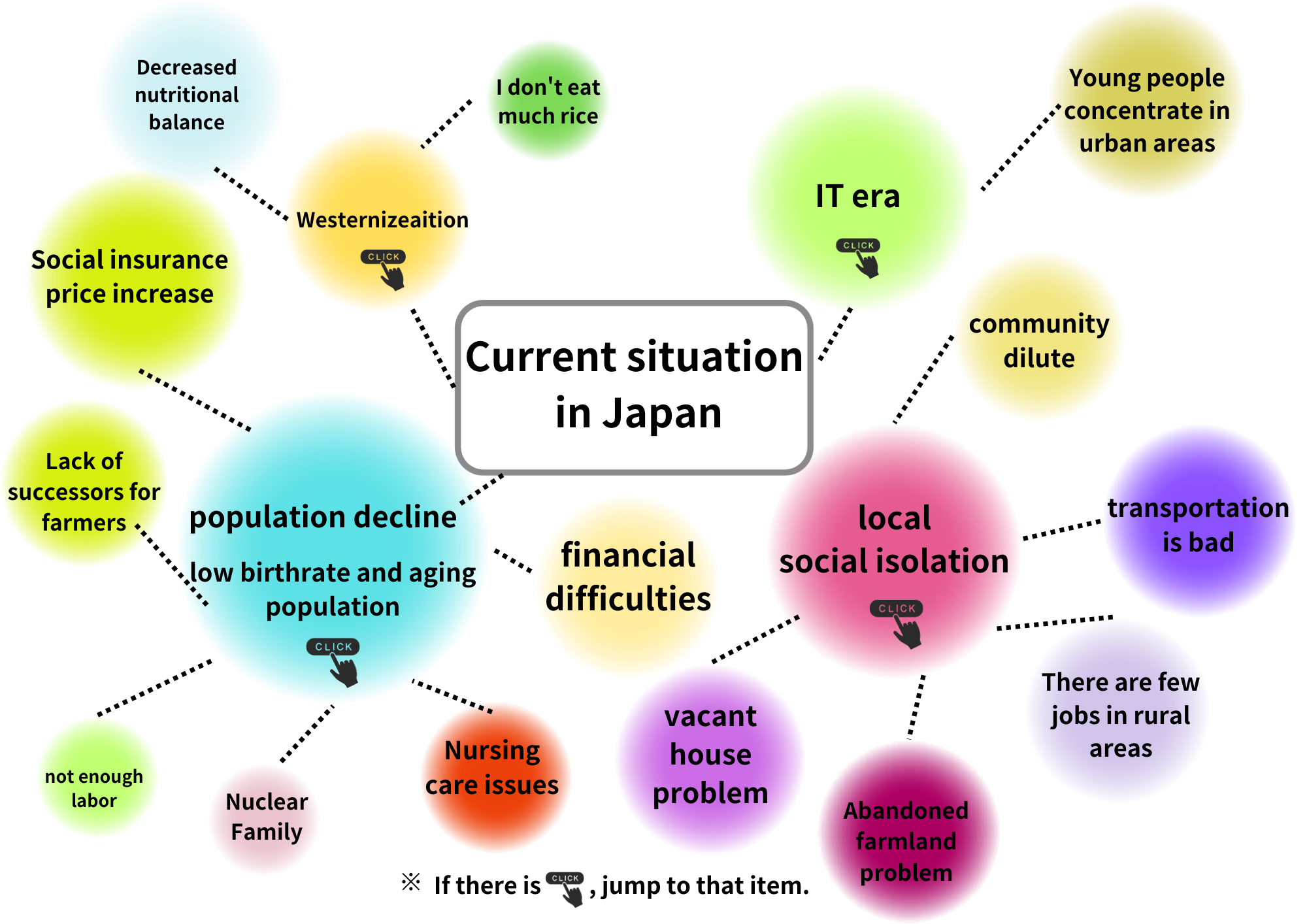
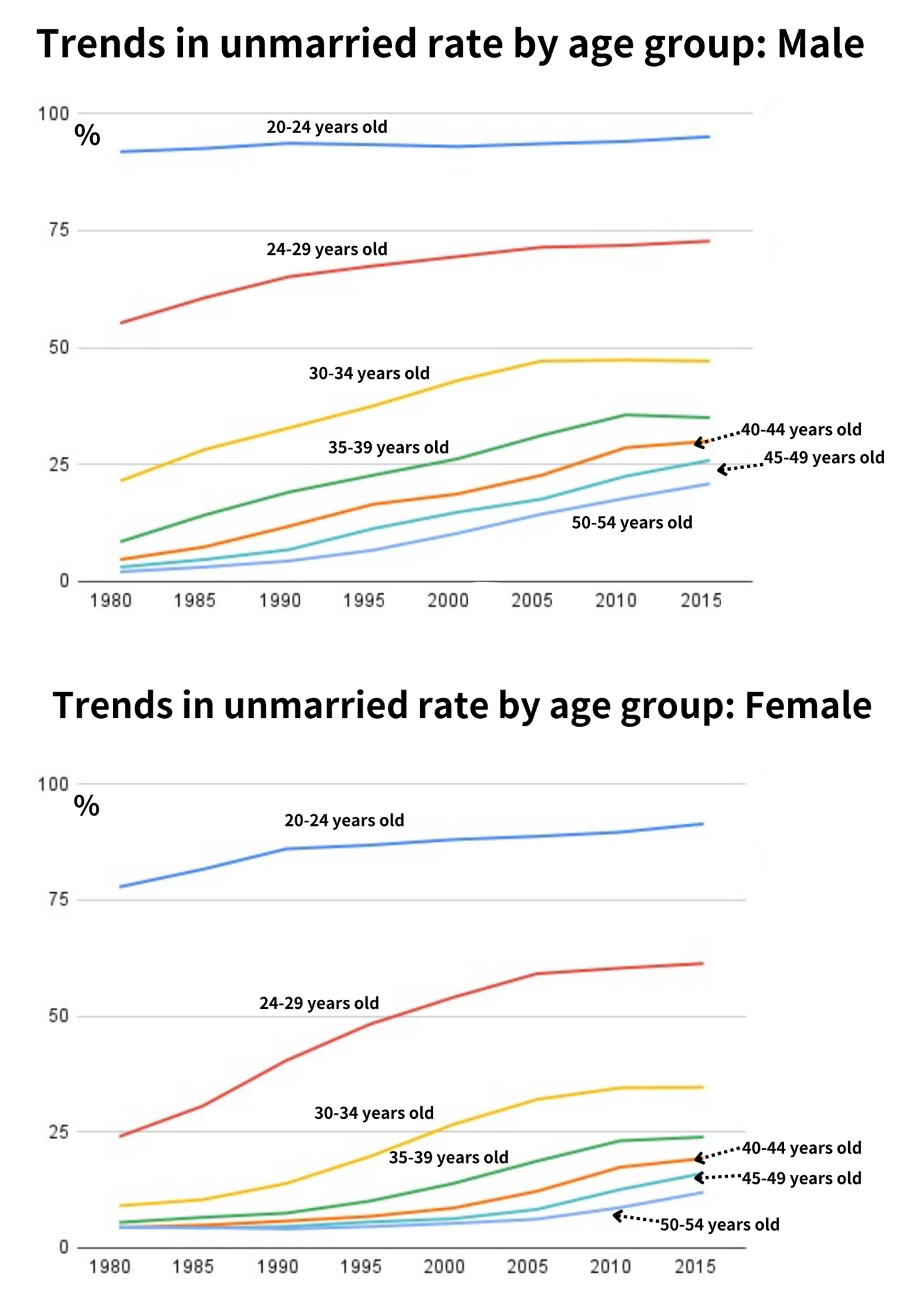
As of October 1, 2023, there were 124.34 million people (according to the Ministry of Internal
Affairs
and Communications),
but the population is decreasing year by year.
As a background to population decline,
the meaning of having children is changing due to social
changessuch as economic growth.
There are changes in the view of marriage,
such as people becomingunmarried,getting married later in
life, and having children later in life.
As a financial problem, some people are worried about getting married
because they don't have enoughmoney to live on after marriage or to get married and raise
children.
I also believe that the recent outbreak of the new coronavirus (COVID-19) has had an
impact.
At a time when birth rates were rising, children worked to help their parents, and
some thought of themas part of the workforce,
with the role of caring for them in old age and
the purpose of consumingservices.
However, with the passage of time, the social insurance system has been improved, and more and
more
people are saying they have no expectations for their children, and the role of children is thought
to be declining.
In addition, lifestyles have changed as women have become more highly educated and the wage gap between
men
and women has narrowed, as women have entered the workforce.
Having a child brings physical and
financial concerns, such as the balance between childcare and work, and the cost of child care.
Children require a huge amount of money, including living expenses, school fees, cram schools, lessons,
etc...
and because of the financial burden, some people choose to give up on having children.
With the passage of time, people's way of thinking has shifted from a world where marriage and
child-rearing were taken for granted, as more and more people are starting to place importance
on
personal happiness and career over work.
With regard to the aging of the population,
the baby boomer
generation born during the first baby boom
has become a generation known as the elderly, and the proportion of elderly people in the total
population is rapidly increasing.
In 1945, the average life expectancy was 50.06 years for men and 53.96 years for women, but
due to
medical advances and dietary habits, statistics for 2021 show that it is now 81.05 years for men
and
87.09 years for women, the highest in the world. We have become a country with a long life
expectancy.
The proportion of elderly people in Japan's total population is at a record high of 29.1% (2023),
with
the number of people aged 75 and over exceeding 20 million for the first time, and one in ten people
aged 80 and over.
It's great that the average life expectancy is increasing, but if the aging rate is higher than the
birth rate, it will cause problems such as increases in social insurance premiums, shortages of
human
resources in medical and nursing care fields, and sluggish economic growth. You can In
addition,
there will be an increase in various causes such as a lack of successors to farmers and elderly
people living alone and dying alone. Furthermore, it also leads to a decline in the QOL
(quality of life) of the elderly.
If this situation accelerates, the estimated future
population will decrease to 87 million people
by 2070, and society will continue to be hit hard.
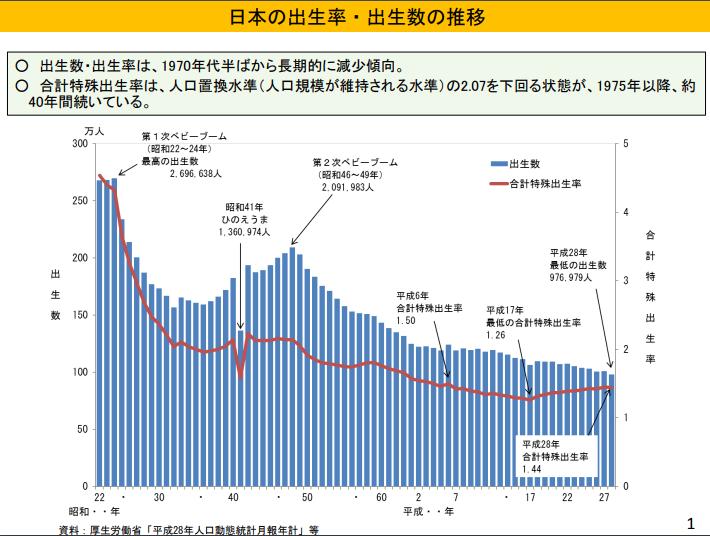
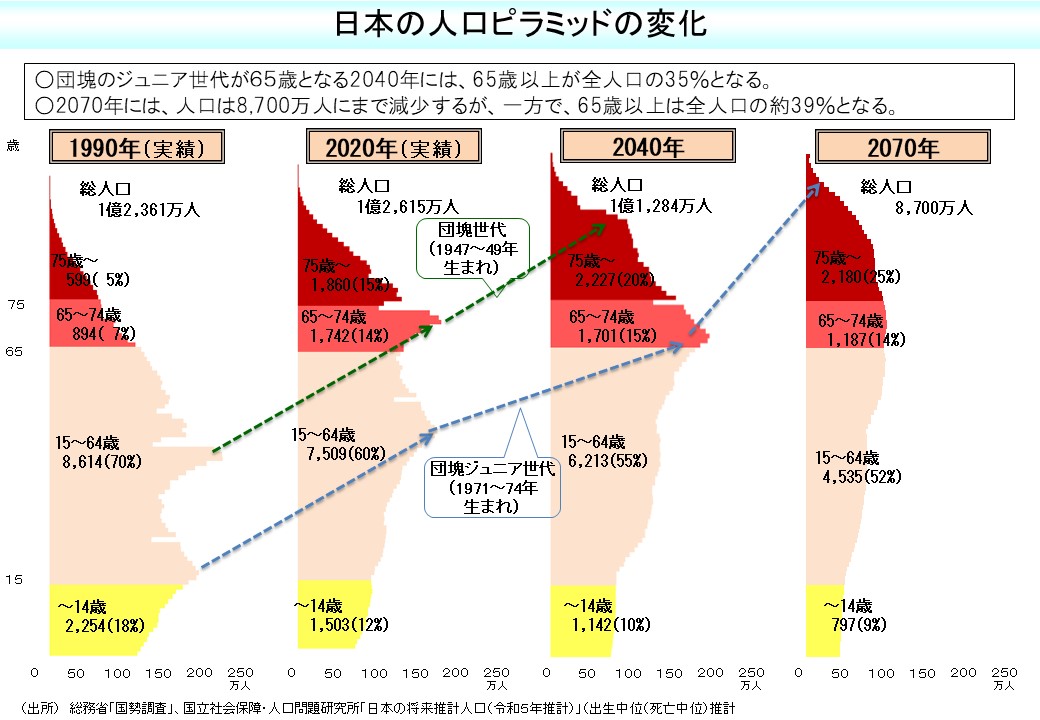
Naturally, as the population decreases, the demand for transportation also decreases.
If the amount of transportation used decreases,
the profitability of companies will deteriorate, and the
supply of transportation will inevitably decrease.
In addition, if the transportation network shrinks,
it will become difficult to continue living in the area,
and elderly people in particular may end up living in isolation.
Local communities may weaken, and local shopping streets and restaurants may be forced to go
out of business.In rural areas in particular, the demand for housing is decreasing, the number of vacant
houses is increasing, and the houses are becoming dilapidated.
If housing is poorly managed, security issues will also arise.
Furthermore, farmers are not ranked in the ranking of desirable jobs, which causes young people to
move to urban areas in order to pursue higher education or find a job.
After the war, Japan entered a period of economic growth, foreign cultures poured into
Japan, and Westernization progressed.
There are benefits as well, such as deepening your understanding of different cultures and traditions and
providing an opportunity to build friendships through food.
Rice is an indispensable part of Japanese food, and in the Edo period, white rice was considered a luxury
item and was a valuable item.
However, in recent years, the amount of rice consumed per year per person in Japan was nearly 100 kg in
1970, but by 2020 it will be 50.8 kg, about half the amount consumed.
There are various reasons for this, including the diversification of dietary habits (staple foods
include bread instead of just rice), population decline, and changes in family structure (Nuclear Family).
Introducing foreign ingredients and cooking methods has the advantage of developing a new food culture and
enriching the Japanese diet, but if the self-sufficiency rate of traditional rice etc. decreases,
farmers will no longer be able to survive on their own. If they are unable to do so, there is a
possibility that young people will not be able to take over and the business will die out.
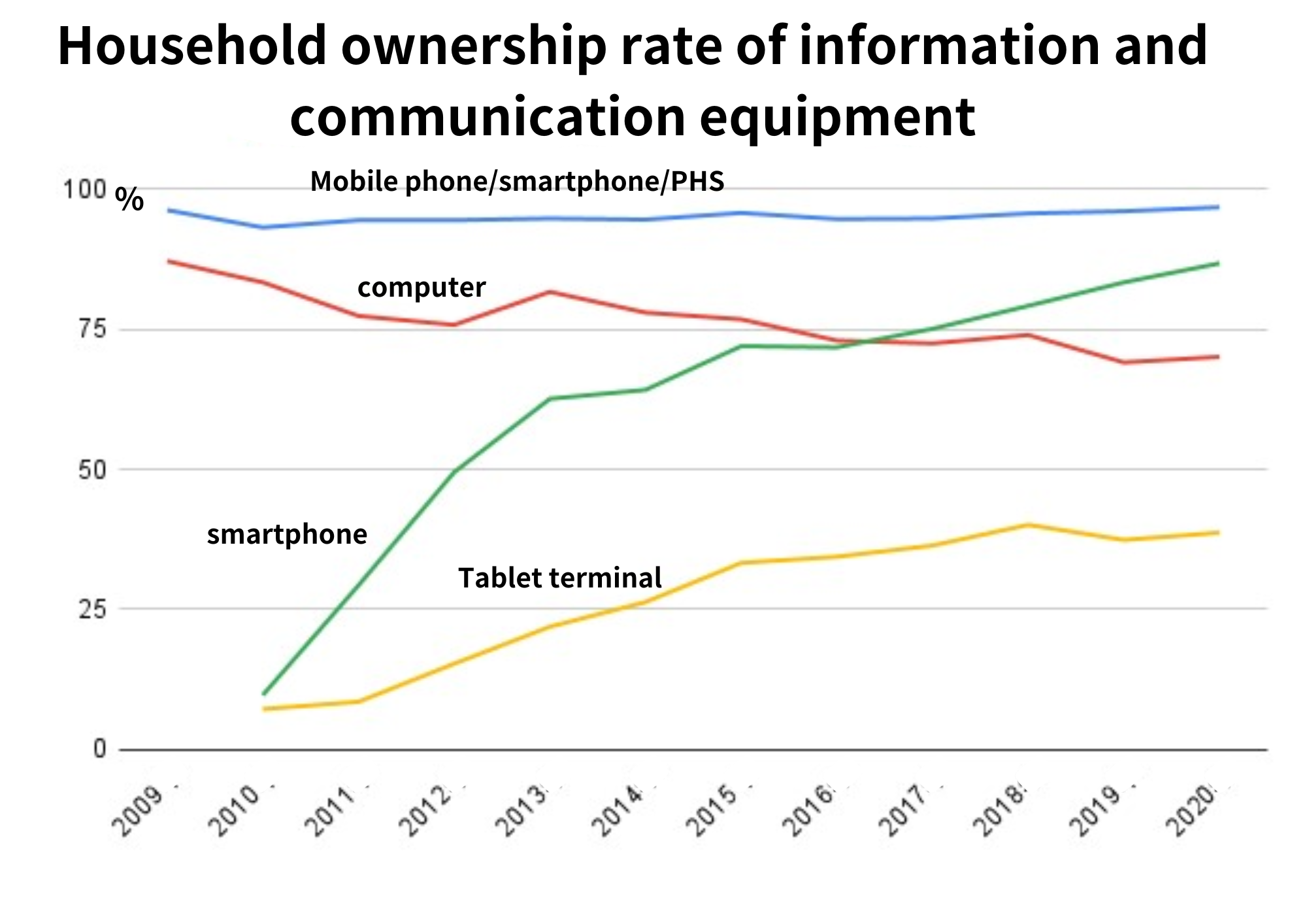
Computer network information technology has grown, and mobile terminals (mobile phones, PHS, and
smartphones)
have become indispensable in our daily lives, with a high ownership
rate.
Even in school education, ICT education has started from elementary school students.
In addition, an increasing number of schools are introducing computers into classes,
with each junior high and high school student having their own computer.
In addition, due to the impact of the new coronavirus (COVID-19), an
increasing number of companies have introduced telework in response to the infectious disease
(infection prevention and business continuity) following the declaration of a state of emergency
in 2020.
Telework eliminates commuting time and allows you to work from home,
which
has advantages such as preventing the spread of infection, being able to secure human resources from
various regions, and improving work efficiency. There also seem to be disadvantages, such as
difficulty in communicating and sharing internal information and know-how.This initiative is
essential in modern society, where a variety of work styles are required, but there are also reasons
why companies and head offices locate their offices in Tokyo, including convenience of
transportation, concentration of companies and business partners, and the market.
Also, since there are far more universities in Tokyo than in regional areas, some students
choose to
go to Tokyo for further education. In addition, there are disparities between urban centers and
rural areas in terms of places to study and the number of jobs available, such as finding a job
in
Tokyo, where there are many companies.
